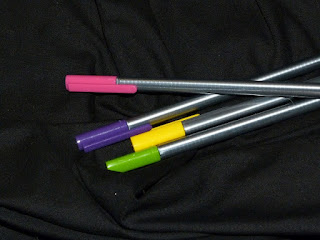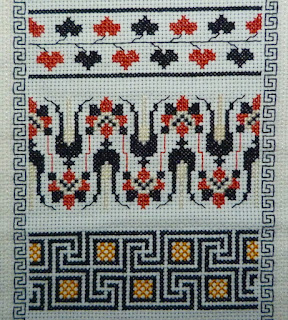H is for...Happiness
This whole blog series is aimed at finding your Happiness through a journey of journal writing. So that begs the question: what is happiness? Or should we rather contemplate what happiness means to us as individuals?
I think for each one of us being happy may mean something different, and yet we still have many things in common that we can all nod and say, yes, that would be my happiness too.
In his book, Flow, Mihaly Csikszentmihalyi, dug deep into the psyche of what happiness truly is. I would say with 20+ years of research, he knew what he was talking about when he wrote - “in the quest for happiness, partial solutions don't work.”
When you sit for a moment and think about that statement, you will come to agree that it is true.
The partial solutions Mihaly mentions are the weight-loss, get rich with this formula, do this to be successful books. And there are many available. Many. While they might be true, you will be thin, rich and successful, but will you be happy as a result?
These books promise you the sun, moon, and stars, but they never tell you what to do once you have reached the promised land. What happens if you are now rich, but the underlying reasons for your unhappiness can't be fixed with having money? Or being successful? Or thin?
So why aren't there many books offering you the 'full solution'? Because nobody can tell you what you need to be happy. Is being overweight making you unhappy, or is it the relationships in your life? Is not having any money the reason for your unhappiness, or is it jealousy about what other people have? Do you really want the same success as your friend, or are you afraid that they will reject you if you do not achieve the same as them?
Can you imagine what such a book will look like if someone were to write it? It would be thousands of pages long, and then it could still not make you happy. Because, it was not written for you as a person, an individual.
Happiness is not about pleasure either, despite what the world tells us in its attempts to sell instant gratification as happiness. Pleasure is a fleeting thing, short-lived and the act or its results has no lasting impact on our inner self as a person.
So what else is there?
Enjoyment, as opposed to pleasure, is an experience rather than a moment's gratification. It is making a choice to do things in a different way.
I wish I could tell you where to find the answer, the solution, the recipe, to being happy, but I cannot. No one can. Only you can do that. Only you can pave the way towards your own happiness.
You can start on that path, using your journal, to explore the following:
1. Challenge yourself with activities that require skill
Mental and physical activities are included. This is not just about your hobbies or personal time. We spent an enormous part of our lives working, and yet people constantly complain about their jobs. How could you possibly find any enjoyment doing a job that doesn't challenge you on some level?
2. Give the task your absolute attention - concentrate
I am sure you are familiar with the saying, 'time flies when you are having fun'. People say that because they are so focused on their task (whatever the task might be) that their awareness of time is different. They are not clock watching because they are concentrating on getting the task completed. Being focused and giving all your concentration on a task, is a choice irrespective of the level of enjoyment of the task. Just remember how good it felt when you finished a task, even if it wasn't something that you enjoyed to do.
Case in point: I hate ironing (I am sure there are more people that feel the same). Since I have a back problem, standing or sitting in one position for any length of time causes my back to ache, a lot. So I have learned to do any standing or sitting activities in 20 to 30 minute periods, without pain.
Since I dislike the chore so much, and cannot dawdle in its execution, I have managed to optimise my technique in such a way that I can iron on average 15 long sleeved shirts in 20 minutes. For most people that may sound odd, but for me, it is a task that I give my full attention to, mostly to get it done and out of my life.
It is still 20 minutes of my life that I would rather spend doing something else, but getting so much done in such a short time, provides me with a sense of accomplishment.
3. Set clear goals for the activity and the achievement is obvious
This is fairly straightforward and even works for an unpleasant task, like my ironing. Some goals are long-term and it can be difficult to keep your eye on the ball. In such a case it would be good to set milestones along the way to help keep you motivated and feeling accomplished as a result. Who wouldn't feel elated when the short-term achievements bring you closer to your long-term goal?
4. Enjoyable activities bring a different kind of enjoyment
Some aspects of our lives can be worrisome and stressful, and we cannot avoid those. Taking part in activities that you enjoy, activities that require focus and concentration, will help in alleviating some of the constant negativity our minds can often fall into.
The same applies when it comes to the setting of goals and the achievement thereof. Again, these activities do not have the physical to provide the focus our minds require.
5. Sense of control
This is more of a physical activity element, in that danger exists in some sports, like rock climbing. The sense of control helps the climber prepare his mental approach towards the climb. The risk is still there, but the goal and the achievement thereof rests with the climber in his ability to control his ascent and the way he approaches the climb.
Personally, I think the same sense of control is prevalent in the practitioners of martial arts, even those styles where full contact can be dangerous. Their ability to focus on the activity and the control they practice to exert themselves, brings about the achievement of the goals set as part of their studies.
Your journey and journal
Your challenge is to identify the activities where focus and concentration can bring about change in the way you do the task. The enjoyment of either the activity itself, or the achievement of the set goal, is the primary objective.
None of these elements of enjoyment will bring you happiness overnight, nor will they do so in isolation. It is a path, a journey, where you can grow into the happiness you see for yourself.
Explore these elements as you set a task for yourself, its goals, and the way you experience the completion thereof. Would it change the way you set the next task? Did the successful completion of an unpleasant task change the way you will approach a similar task in future?

 My drawing with ink and Lyra Brush pens on handmade paper. You are welcome to copy my design if you like, or do your own. Size is about 8.5 cm in diameter because it was the size of the container's cap I used to draw the circle.
My drawing with ink and Lyra Brush pens on handmade paper. You are welcome to copy my design if you like, or do your own. Size is about 8.5 cm in diameter because it was the size of the container's cap I used to draw the circle. I tore the paper (using the edge of an old CD since it was a little larger) instead of cutting it out with a pair of scissors. I wanted to keep the rugged edge feel of the handmade paper. Then I glued it into my journal with acid-free glue before writing the words for the entry.
I tore the paper (using the edge of an old CD since it was a little larger) instead of cutting it out with a pair of scissors. I wanted to keep the rugged edge feel of the handmade paper. Then I glued it into my journal with acid-free glue before writing the words for the entry.










